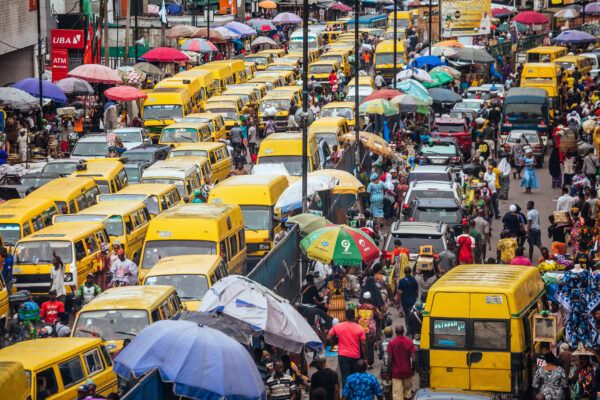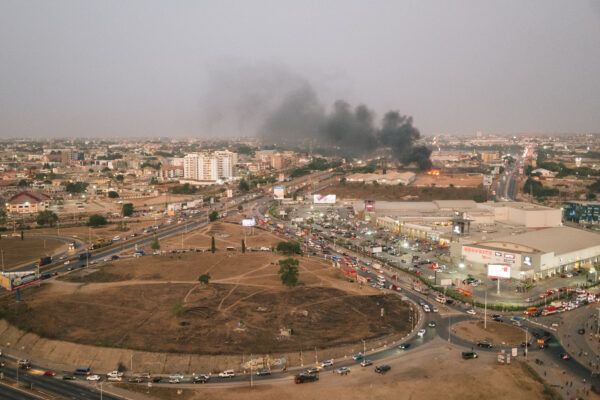Last week African leaders met in Nairobi for the inaugural Africa Climate Summit. There were three clear messages at the heart of the Nairobi Declaration that was agreed at the summit:
- Africa is the most vulnerable continent to the impact of climate change. Despite having contributed the least to global warming and having the lowest emissions, Africa faces exponential collateral damage, posing systemic risks to its economies, infrastructure investments, water and food systems, public health, agriculture, and livelihoods.
- The international finance that is currently on the table to tackle the climate crisis is insufficient, and only a small fraction of this funding goes to African countries where the finance is most needed.
- More positively, there is huge potential to harness Africa’s forests, rich minerals and other natural resources to develop new green energy resources. These investments will also bring strong ‘co-benefits’ for sustainable development, green jobs and opportunities, but it will take a substantial increase in international finance to realise these benefits.
Mobilising finance to deliver clean air in Africa
In many ways the challenge to deliver clean air in Africa exemplifies the risks and opportunities outlined by leaders this week. Africa is disproportionately affected by air pollution. In 2019, five of the world’s 10 most heavily polluted countries (in terms of fine particulate matter) were in Africa. Air pollution is already the second leading cause of death, behind HIV/AIDS, in Africa. The annual cost of health damages due to disease related to air pollution amounts to an average of 6.5% of GDP across Africa.
As we heard in so many examples regarding Africa’s energy transition, the international finance on the table to address outdoor air quality is insufficient, and only a small fraction of this funding goes to Africa. The most recently available data shows, between 2015-2021, international development funders committed $11 billion (around $1.5 billion per year) to projects that purposely work to improve outdoor air quality. This accounted, on average, for just 0.5% of total international development funding supports air quality improvement projects in Africa. This is despite all of the evidence that Africa faces a disproportionate burden on air quality.
As with many other examples related to Africa’s energy transition, there is a need for grant-based or truly concessional financing that doesn’t saddle countries with further debt. Innovative financing models and solutions are needed to increase the capital available to fund clean air programmes and reduce some of the risks related to air quality projects – or other projects that bring air-quality co-benefits. This would also incentivise the private sector to play a greater role in financing these programmes.
Multilateral Development Banks (MDBs) represent the largest sources of financing for outdoor air quality projects. The policy calls that were affirmed in the Nairobi Declaration, if implemented, radically scale the financing MDBs provide for air quality projects.
A roadmap for a sustainable future
The Africa Climate Summit was always honest, but never overwhelmed, by the challenges and there was an overriding message of optimism and opportunity. The same is true for air quality. Investments to clean the air bring tremendous benefits for health, climate, economy and social development. Analysis commissioned by the Clean Air Fund estimates that just four megacities in Africa – Cairo, Johannesburg, Lagos and Accra – could bring about huge benefits if they move away from a ‘business as usual’ approach. If these cities implement policy reforms and investments that tackle road traffic, industrial activities, household energy, land clearing and waste burning, they could
- save at least 40,000 lives
- unlock $20.4bn in economic savings
- reduce their greenhouse gas emissions by up to 20% between 2023 and 2040.
Given the strong overlaps between the causes of air pollution and climate change, and also strong co-benefits that can flow from focusing on climate and air quality programmes together, it was disappointing that there was no specific reference to air quality in the Nairobi Decoration.
Nonetheless, the agenda outlined this week is a roadmap for the future, which includes many proposals – from financing for climate change adaptation to proposed reforms to Multilateral Development Banks. If implemented, these proposals offer significant opportunities to scale up the international financing that will be essential to delivering clean air in Africa.
See more

